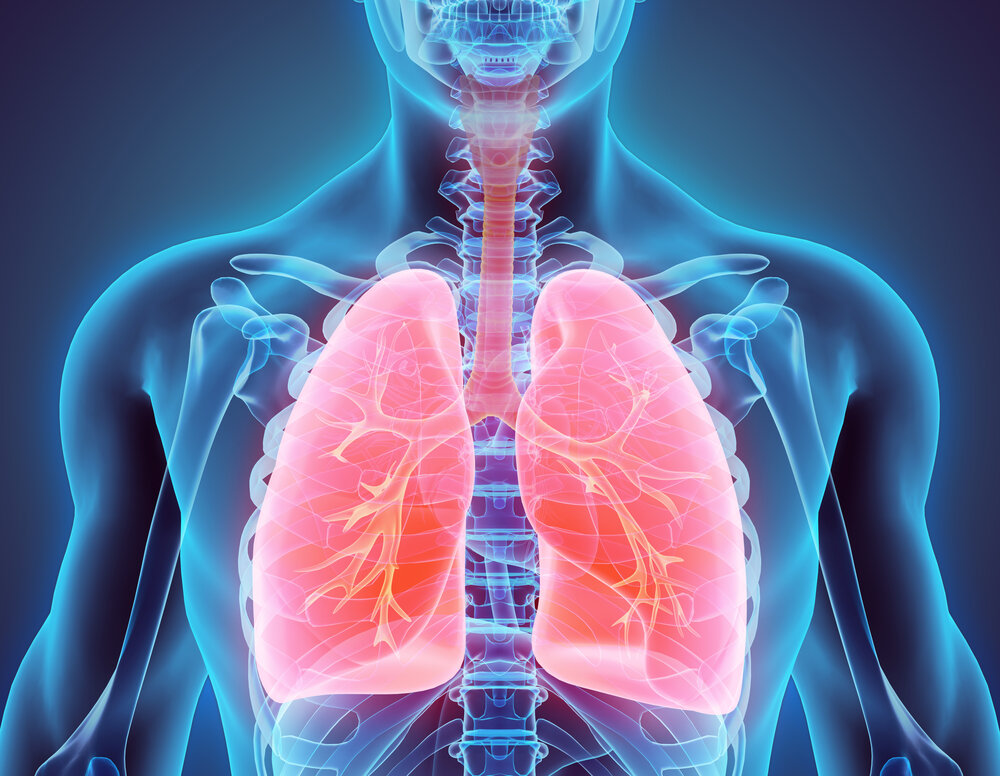
Breathing and Lungs
Share
Best Supplements for better Breathing and Lung function
Breathing is one of the most fundamental processes that our body performs to stay alive. However, with the continuous increase in air pollution, respiratory diseases are becoming more common. It is crucial to take proper care of our lungs as they are the primary organ responsible for breathing.
In this article, we will talk about the top supplements that can help in improving lung function and better breathing.

Along with that, we will also discuss the importance of lung health and how to incorporate these supplements into your daily routine. So, let's dive in and learn more about these supplements that can help us take care of our lungs.
| Characteristic | Description |
|---|---|
| Breathing | The process of inhaling oxygen into the lungs and exhaling carbon dioxide, essential for respiration. |
| Lungs | Pair of organs responsible for gas exchange, located in the chest cavity. |
| Structure | Composed of spongy tissue, divided into lobes (right lung has three lobes, left lung has two lobes). |
| Alveoli | Tiny air sacs within the lungs where gas exchange occurs. |
| Diaphragm | Dome-shaped muscle beneath the lungs that contracts and relaxes, aiding in the breathing process. |
| Inhalation | Active process; diaphragm contracts, chest cavity expands, air is drawn into the lungs. |
| Exhalation | Passive process; diaphragm relaxes, chest cavity decreases in size, air is expelled from the lungs. |
| Gas Exchange | Oxygen from inhaled air diffuses into the bloodstream, while carbon dioxide is removed from the body. |
| Respiratory System | Comprises the lungs, airways (trachea, bronchi), and other structures involved in breathing. |
| Control of Breathing | Regulated by the brainstem, which monitors levels of oxygen and carbon dioxide in the body. |
| Respiratory Rate | Number of breaths per minute. |
| Lung Capacity | Maximum amount of air the lungs can hold (vital capacity, tidal volume, residual volume, etc.). |
Lung health is of utmost importance as the lungs play a vital role in maintaining the body's respiratory system. According to KM McClean et al. (2008), the lungs are responsible for providing oxygen to the body while eliminating carbon dioxide. The lungs also act as a filter, preventing harmful particles from entering the body. The importance of lung health is evident in the fact that lung diseases can significantly impact a person's quality of life.
Check the supplements we recommend for this conditions:
160. Magnesium Glycinate
154. DRSOUS.CA Vitamin D3 helps maintain bone density, strength and healthy cell growth
104. DrSous.Ca Bee Pearl Powder smoothie propolis royal jelly
103. DrSous.Ca Bee Pearl pollen nectar enzyme blend 30 capsules
108. DRSOUS.CA Birch Chaga Truffles
107. DRSOUS.CA Birch Chaga Microbiome Wellness Powder
106. DrSous.Ca Birch Chaga Microbiome Wellness 30 Capsules
Chronic obstructive pulmonary disease (COPD) and asthma are two common lung diseases that can cause shortness of breath, wheezing, and coughing. Lung cancer, which is often linked to smoking, is also a significant concern as it is the leading cause of cancer deaths worldwide. Therefore, it is crucial to maintain good lung health by avoiding smoking and exposure to air pollutants such as industrial chemicals and second-hand smoke. Engaging in physical activity and eating a healthy diet can also contribute to maintaining healthy lungs. Regular check-ups with a healthcare provider can help detect and treat lung diseases early, allowing for better management and improved quality of life. In conclusion, the importance of lung health cannot be overstated, and efforts should be made to maintain healthy lungs through various means, including prevention and early detection of lung diseases.

In the American Journal of Otolaryngology-Head and Neck Medicine and Surgery, El Sayed et al. (2020) identified the top ten supplements that can improve breathing. These supplements include magnesium, vitamin D, omega-3 fatty acids, vitamin C, N-acetylcysteine (NAC), ginseng, caffeine, quercetin, eucalyptus oil, and butterbur. Magnesium is essential for muscle function and relaxation, which helps with breathing. Vitamin D is crucial for lung health and function, and omega-3 fatty acids have anti-inflammatory properties and can improve lung function. Vitamin C is a potent antioxidant that protects against oxidative stress and inflammation, both of which can worsen breathing problems. NAC is a mucolytic agent that can break down mucus in the lungs, making it easier to breathe.
Ginseng has been shown to improve lung function and reduce inflammation.
Caffeine is a bronchodilator that can open up airways, making breathing easier. Quercetin has anti-inflammatory and antihistamine properties, which can reduce inflammation and improve breathing.
Eucalyptus oil has been shown to reduce airway inflammation and promote bronchodilation.
Finally, butterbur has been shown to reduce airway inflammation and improve breathing. In conclusion, incorporating these supplements into a daily regimen may help improve breathing for individuals experiencing respiratory issues.

Supplements have become a popular addition to people's daily routines in recent years. Incorporating supplements into a daily routine requires careful consideration and planning. B Wellman et al. (2001) recommend starting with a multivitamin supplement that contains essential nutrients like vitamins A, C, D, and E, as well as minerals like calcium and iron. It is important to choose a high-quality supplement from a reputable brand to ensure it contains the proper dosage and is free from harmful contaminants.
Additionally, it is important to take supplements at the same time each day to establish a routine and ensure consistency. Some people may find it helpful to incorporate supplements into their mealtime routine to avoid forgetting to take them. However, it is important to note that supplements should not replace a healthy diet and exercise routine.
Wellman et al. (2001) suggest consulting with a healthcare provider before starting a supplement routine to ensure it is safe and appropriate for individual needs. By carefully selecting high-quality supplements, establishing a consistent routine, and consulting with a healthcare provider, individuals can successfully incorporate supplements into their daily routines.
In conclusion, supplements can be a great complement to a healthy lifestyle to improve breathing and lung function. The 10 supplements mentioned above, including vitamin C, magnesium, and ginseng, have been shown to provide benefits such as reducing inflammation, improving oxygen uptake, and supporting lung tissue health.
However, it is important to always consult with a healthcare professional before starting any supplement regimen, especially if you have pre-existing medical conditions or are taking medications. With the right combination of healthy habits and targeted supplements, individuals can take proactive steps towards better respiratory health and overall well-being.
Lungs and Breathing FAQLungs and Breathing FAQ
Frequently Asked Questions
What are 3 facts about lungs and breathing?
Lungs are vital organs responsible for the exchange of oxygen and carbon dioxide in the body. 2. The average adult takes around 12 to 20 breaths per minute, resulting in about 17,000 to 30,000 breaths per day. 3. Deep breathing exercises can help improve lung capacity, enhance oxygen intake, and promote relaxation.